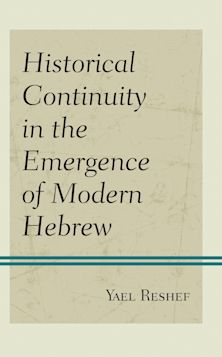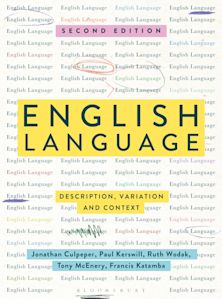- Home
- ACADEMIC
- Linguistics
- Introductory Linguistics
- Archaeology, Language, and the African Past
Archaeology, Language, and the African Past
You must sign in to add this item to your wishlist. Please sign in or create an account
Description
Archaeology, Language, and the African Past is an overview of theories and methods, a fusion of African linguistics and archaeology. Roger Blench provides a comprehensive look at the history of all African language families, incorporating the latest linguistic classifications, current evidence from archaeology, genetic research, and recorded history. This original and definitive volume examines the economic culture of the continent_from major crops and plant life to animals and livestock_from a multi-dimensional perspective. It provides students of linguistics, archaeology, and anthropology with a critical discussion on the history of African languages and the cultures they articulate.
Table of Contents
Chapter 2 Preface
Part 3 Part I: Developing General Models of the African Past
Chapter 4 Introduction: Language, History, and Archaeology in Africa
Chapter 5 Chapter 1: Contested Methodologies
Part 6 Part II: African Language Phyla
Chapter 7 Chapter 2: Nilo-Saharan
Chapter 8 Chapter 3: Niger-Congo
Chapter 9 Chapter 4: Afroasiatic
Chapter 10 Chapter 5: Khoesan
Chapter 11 Chapter 6: Other Language Groups
Chapter 12 Chapter 7: Synthesis
Part 13 Part III: Reconstructing Economic Prehistory
Chapter 14 Chapter 8: Plants
Chapter 15 Chapter 9: Animals
Chapter 16 Chapter 10: Summing Up
Chapter 17 References
Product details
| Published | Jun 22 2006 |
|---|---|
| Format | Ebook (PDF) |
| Edition | 1st |
| Extent | 1 |
| ISBN | 9798216203339 |
| Imprint | AltaMira Press |
| Series | African Archaeology Series |
| Publisher | Bloomsbury Publishing |
About the contributors
Reviews
-
This book is an enthusiastic plea in favour of more intensive and dynamic trans-disciplinary collaboration for the reconstruction of the African past. With a comprehensive survey of methodological issues, the author offers a good insight in what we can credibly recover from the historical study of languages. He develops a series of inspiring assumptions on the origin and expansion of Africa's language families by linking the most recent linguistic data-often collected by himself-with evidence from archaeology, genetics, ethnography, and oral traditions. He also delves into the economic history of the continent through the comparative study of plant and animal vocabularies, a field of research which unfortunately too few other scholars in African linguistics have explored.
Koen Bostoen, Royal Museum for Central Africa Tervuren, Belgium
-
Roger Blench's new book is an impressive demonstration of the ways in which evidence from different disciplines-including archaeology, historical linguistics, comparative ethnography, ethnobiology, and genetics-can be combined to generate compelling reconstructions of African prehistory. The result is both entertaining and scholarly, a magisterial synthesis of current methods and knowledge that is enriched by a wealth of data and insights from the author's own researches in the field. This is a book that no student of the African past can afford to be without.
Martin Walsh, University of Cambridge
-
Roger Blench, discoverer of numerous relict and isolated African languages, takes a refreshing, global, and interdisciplinary approach to his study of African historical linguistics and archaeology, and of the cultural dynamics that lie behind the present peopling of the continent. His erudite, critical, and yet accessible exposition and bold-at times controversial-synthesis document the present state of the 'mutual interplay' between the two disciplines in a book that linguists will argue about and archaeologists pore over for many years to come.
Nic David, University of Calgary
-
For over a century linguists, archaeologists, historians, anthropologists, and more recently, geneticists have each been writing their own versions of African history. Similarly, specialists in the four African language phyla have been telling the history and classification of their own phylum. Now for the first time comes a book which synthesizes all these threads. The author is at once scholarly and able to communicate in a way that makes the book accessible to students and academics.
Derek Nurse, Memorial University of Newfoundland

































